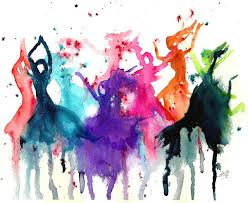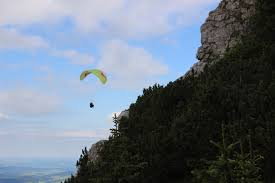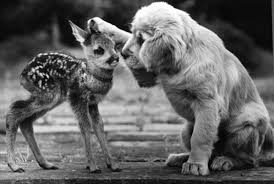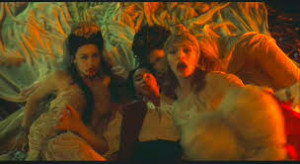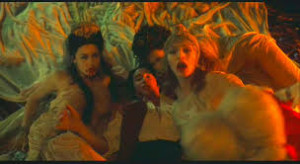It seems to us that we know ourselves, but that we take the existence of our psyche on faith. At best, it often seems that we are all that we know of our psyche, and we will complain that we do not know oneself to begin with. When we say: “I want to find myself,” we usually take it for granted that there is a completed, done, finished version of oneself that we have mislaid somewhere. When we think of finding God, we often think in the same terms.
We are “around ourselves” all the time. We are ever becoming oneself. In a manner of speaking we are “composed” of those patterns of oneself that are everywhere coming together. We cannot help but be oneself. Biologically, mentally, and spiritually we are marked as apart from all others, and no cloak of conventionally can ever hide that unutterable uniqueness. We cannot help but be ourselves.
In a way, physically we are a molecular language that communicates to others, but a language with its own peculiarities, as if speaking an accepted tongue we spoke with a biological accent that carried its own flavor and meaning.
When we ask: “What is my psyche, or my soul, or who am I?” we are seeking of course for our own meaning as apart from what we already know about oneself. In that context, God and the psyche are constantly expanding– unutterable, and always becoming.
We will question, most likely, “Becoming what?” for to us it usually seems that all motion tends toward a stat of completion of one kind or another. We think, therefore, in terms of becoming perfect, or becoming free. The word “becoming” by itself seems to leave us up in the air, so to speak, suspended without definitions. If I say: “You are becoming what you already are,” then my remark sounds meaningless, for if you already are, how can you become what is already accomplished? In larger terms, however, what we are is always vaster than our knowledge of oneself, for in physical life we cannot keep up with our own psychological and psychic activity.
In a way our bodies speak a biological language, but in those terms we are bilingual, to say the least. We deal with certain kinds of organizations. They can be equated with biological verbs, adjectives and nouns. These result in certain time sequences that can be compared to sentences, written and read from one side, say, to the other.
Pretend that our life’s experience is a page of a book that we write, read, and experience from top to bottom, left to right, sentence by sentence, paragraph by paragraph. That is the you that you know– the wold view that we understand. But other quite as legitimate “yous” may write, read, and experience the same page backwards, or read each letter downward and back up again, as we would a column of figures. Or others might mix and match the letters in entirely different fashions altogether, forming entirely different sentences. Still another, vaster you might be aware of all the different methods of experiencing that particular page, which is our life as we understand it.
We think that our own consciousness is the only logical culmination of our body’s reality. We read oneself in a certain accepted fashion. In the “entire book of life,” however, just physically speaking, there are interrelationships on adjacent levels that we do not perceive, as other portions of our own biological consciousness or biological language relate to the entire living fabric of the world. In physical terms we are alive because of substructures — psychic, spiritual, and biological — of which we have hardly any comprehension at all.
These are implied, however, in the nature of our own consciousness, which could not exist otherwise as we know it. As language gains and attains its meaning not only by what is included in it, but also by what is excluded, so our consciousness attains its stability also by exclusions.
What we are is implied in the nature of what we are not. By the same token, we are what we are because of the existence of what we are not.
We read ourselves from the top of the page to the bottom, or from what we think of as the beginning to the end. Our greater reality, however, is read in terms of intensities, so that the psyche puts us together in a different way. The psyche does not mark time. To it the intense experiences of our life exist simultaneously. In our terms they would be the psyche’s present. The psyche deals with probable events, however, so some events– perhaps some that we dreamed of but did not materialize — are quite real to the psyche. They are far more real to it than most innocuous but definite physical events, as for example yesterday morning’s breakfast.
The inner events of the psyche compose the greater experience from which physical events arrive. They cast an aura that almost magically make our life our own. Even as two people encountered precisely the same events in their lives at precisely the same time, their experiences of reality would still hardly be approximately connected.



